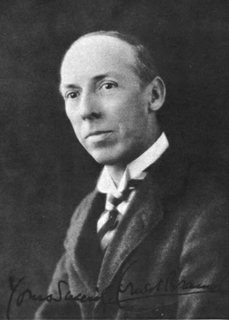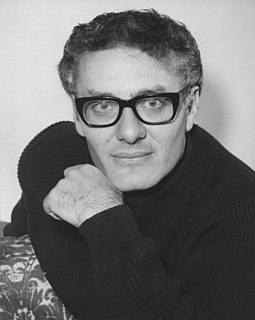A Quote by Edward Gibbon
The retirement of Athanasius, which ended only with the life of Constantius, was spent, for the most part, in the society of the monks, who faithfully served him as guards, as secretaries, and as messengers; but the importance of maintaining a more intimate connection with the catholic party tempted him, whenever the diligence of the pursuit was abated, to emerge from the desert, to introduce himself into Alexandria, and to trust his person to the discretion of his friends and adherents.
Quote Topics
Related Quotes
Philosophy had instructed Julian to compare the advantages of action and retirement; but the elevation of his birth and the accidents of his life never allowed him the freedom of choice. He might perhaps sincerely have preferred the groves of the Academy and the society of Athens; but he was constrained, at first by the will, and afterwards by the injustice of Constantius, to expose his person and fame to the dangers of Imperial greatness; and to make himself accountable to the world and to posterity for the happiness of millions.
Some souls think that the Holy Spirit is very far away, far, far, up above. Actually he is, we might say, the divine Person who is most closely present to the creature. He accompanies him everywhere. He penetrates him with himself. He calls him, he protects him. He makes of him his living temple. He defends him. He helps him. He guards him from all his enemies. He is closer to him than his own soul. All the good a soul accomplishes, it carries out under his inspiration, in his light, by his grace and his help.
When Ling was communicating to any person the signs by which messengers might find him, he was compelled to add, "the neighbourhood in which this contemptible person resides is that officially known as 'the mean quarter favoured by the lower class of those who murder by treachery'," and for this reason he was not always treated with the regard to which his attainments entitled him, or which he would have unquestionably received had he been able to describe himself as of "the partly-drained and uninfected area reserved to Mandarins and their friends.
Every individual is continually exerting himself to find out the most advantageous employment for whatever capital he can command. It is his own advantage, indeed, and not that of the society which he has in view. But the study of his own advantage naturally, or rather necessarily, leads him to prefer that employment which is most advantageous to society... He intends only his own gain, and he is in this, as in many other cases, led by an invisible hand to promote an end which was not part of his intention
In a gesture to moderate Republicans, Reagan put Bush on his '80 ticket, and Bush recognized that the Reagan crowd was rapidly becoming an overwhelming majority in the party. So he adjusted his views, served Reagan loyally and spent much of his vice presidency using his stature to convince conservative leaders they could trust him.
And truly it demands something god like in him who has cast off the common motives of humanity, and has ventured to trust himself for a taskmaster. High be his heart, faithful his will, clear his sight, that he may in good earnest be doctrine, society, law, to himself, that a simple purpose may be to him as strong as iron necessity is to others!
Often nothing keeps the pupil on the move but his faith in his teacher, whose mastery is now beginning to dawn on him .... How far the pupil will go is not the concern of the teacher and master. Hardly has he shown him the right way when he must let him go on alone. There is only one thing more he can do to help him endure his loneliness: he turns him away from himself, from the Master, by exhorting him to go further than he himself has done, and to "climb on the shoulders of his teacher."
Since the social victim has been oppressed by society, he comes to feel that his individual life will be improved more by changes in society than by his own initiative. Without realizing it, he makes society rather than himself the agent of change. The power he finds in his victimization may lead him to collective action against society, but it also encourages passivity within the sphere of his personal life.
[Man] is the only animal who lives outside of himself, whose drive is in external things—property, houses, money, concepts of power. He lives in his cities and his factories, in his business and job and art. But having projected himself into these external complexities, he is them. His house, his automobile are a part of him and a large part of him. This is beautifully demonstrated by a thing doctors know—that when a man loses his possessions a very common result is sexual impotence.
Worship isn't destructive, Martin. I know that. I don't. I only know it's the core of his life. What else has he got? He can hardly read. He knows no physics or engineering to make to world real for him. No paintings to show him how others have enjoyed it. No music except television jingles. No history except tales from a desperate mother. No friends. Not one kid to give him a joke, or make him know himself more moderately. He's a modern citizen for whom society doesn't exist.
Socialism is the doctrine that man has no right to exist for his own sake, that his life and his work do not belong to him, but belong to society, that the only justification of his existence is his service to society, and that society may dispose of him in any way it pleases for the sake of whatever it deems to be its own tribal, collective good.
European society has always been divided into classes in a way that American society never has been. A European writer considers himself to be part of an old and honorable tradition--of intellectual activity, of letters--and his choice of a vocation does not cause him any uneasy wonder as to whether or not it will cost him all his friends. But this tradition does not exist in America.
Behind the newspaper Julian was withdrawing into the inner compartment of his mind where he spent most of his time. This was a kind of mental bubble in which he established himself when he could not bear to be a part of what was going on around him. From it he could see out and judge but in it he was safe from any kind of penetration from without. It was the only place where he felt free of the general idiocy of his fellows. His mother had never entered it but from it he could see her with absolute clarity.






































